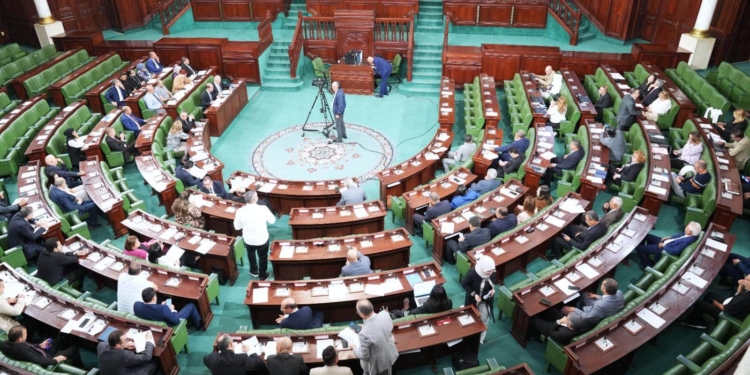Political tension reaches a new high between Parliament and the government. During the plenary session held Monday at Bardo to debate the environmental situation in Gabès, MP Bilal Mechri launched an unequivocal appeal to his colleagues to “assume their responsibilities” and “present a motion of censure against the government”.
In a virulent intervention, the elected official accused the executive “of putting the country at risk” and of having lost all popular legitimacy. “The people are fed up, Mr. President,” he said from his perch, in an electric atmosphere where criticism against the Kasbah is increasing.
Bilal Mechri went further by evoking an “internal conspiracy within the upper echelons of the state”, pointing the finger at “those who sold the harvest of dates, cereals and olives to the foreign mafia” and “those who cut off water and electricity to citizens in the regions”.
These incendiary statements reflect the deep unease that is growing between Bardo and the Kasbah. As social anger grows and several regions threaten to go on strike, the gap widens between a Parliament seeking affirmation and a government accused of impotence and favoritism.
The political crisis now seems to be openly entering the chamber, and calls for a break with the current executive are becoming more and more insistent.
During this same plenary, many deputies called for the resignation of the Minister of Industry against the backdrop of the environmental crisis in Gabès.
This escalation comes a few days before the expected opening of debates on the finance law, a crucial text for the economic balance of the country. Several observers are now wondering: does this political tension risk disrupting budgetary discussions? Elected officials fear that the conflictual climate between the two institutions will compromise the dialogue necessary to adopt the budget on time, especially since economic and social priorities promise to be particularly sensitive this year.








